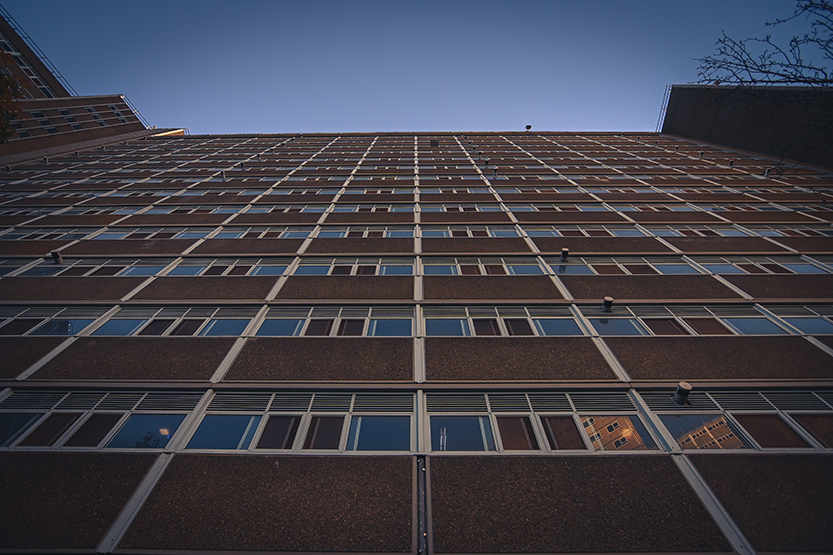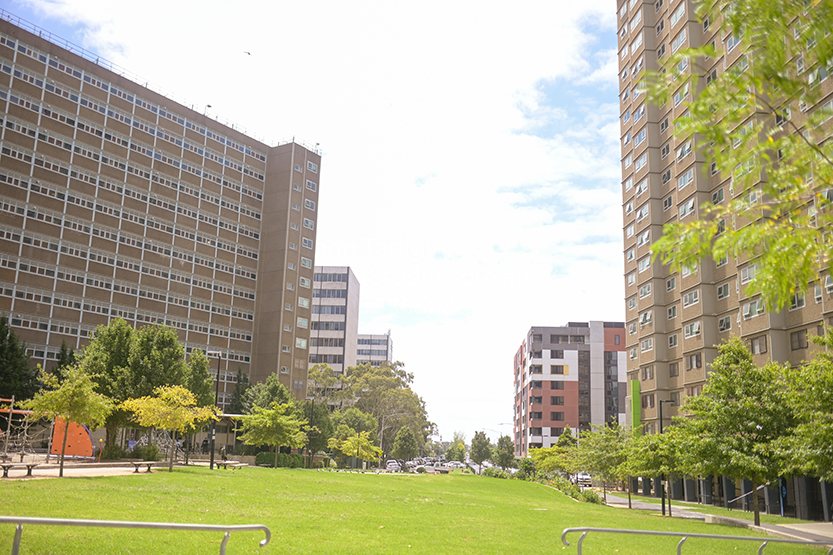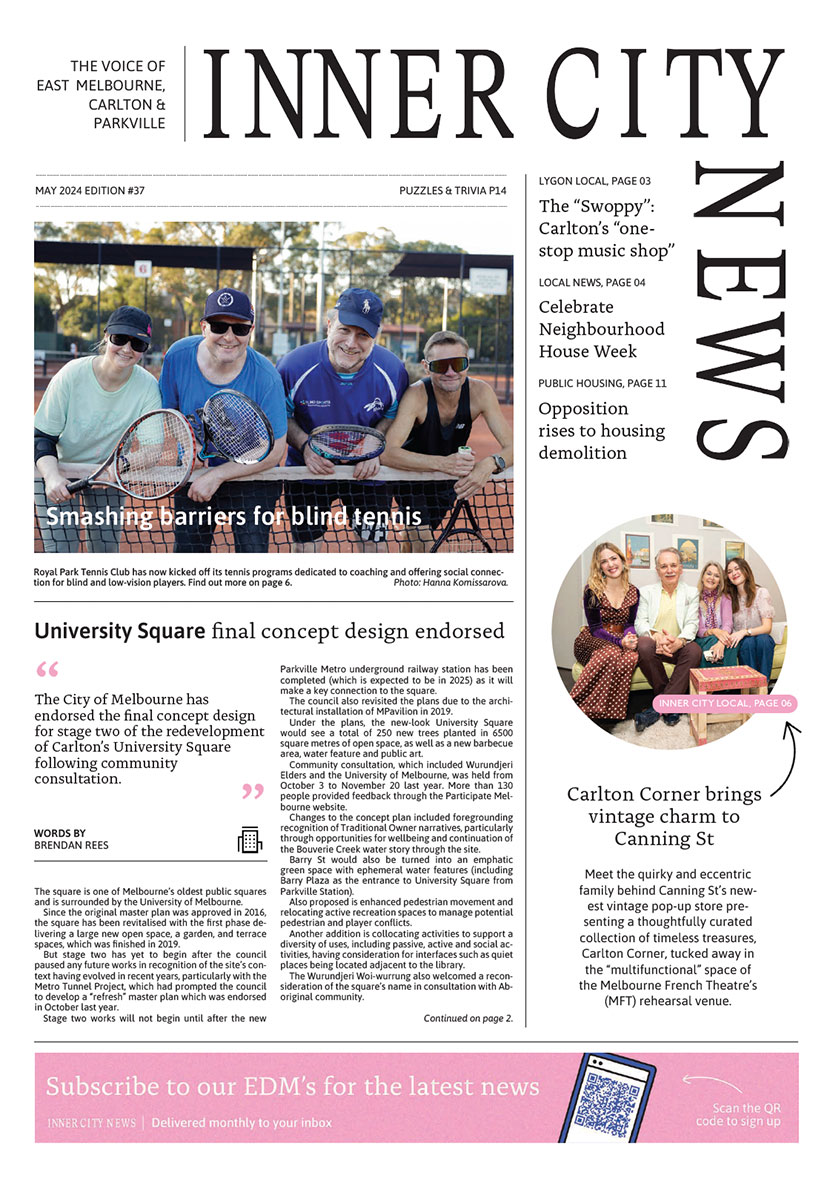Lockdown causing mental anguish for housing tower residents
Isolation, family violence, and poverty are running rampant at Carlton’s housing estates as Melbourne’s fifth lockdown wreaks havoc on the residents.
Community leaders and residents say the Department of Health and Human Services (DHHS) has been “incompetent” when it comes to providing support services for those who need them most.
Drummond Street Services family services manager Amuna Abdella said that confining families to such small spaces was having a major impact on their mental health.
“The impact of this lockdown is really huge, people are flat, they’re struggling with unemployment and poverty, kids aren’t listening to their parents and family violence is on the rise,” Ms Abdella said.
“It’s already very isolating to be from the housing towers, and it’s particularly bad now for mothers, unemployed men, older people and those with a disability.”
During the lockdown, drug and alcohol use has also been increasing, with many apartments having been taken over by squatters.
As a result, residents are fearful to leave their apartments for fear of intimidation or exposing their children to drug use in the common areas.
Resident Shewit Kahsay who is a mother to two children, aged 13 and five, said that it was “miserable” to keep her kids locked up inside.
“With the kids not going to school, it’s not easy to keep them in such a small space, it gives me a headache,” Ms Kahsay said.
“We don’t have a backyard because we live in the high-rise, and the kids don’t want to go downstairs or go into the lift even after being online all day.”
Another resident Tewelde Kidane, who also works as the concierge at 480 Lygon St, said managing the mental health and drug issues in the building was “a constant battle”.
“People are extremely stressed and lonely, and it’s an everyday experience of drug affected people causing issues for the other residents,” Mr Kidane said.
The laundry is being used as a drug injection room on Level 2, Level 8 and Level 10, and families are worried to let their kids out so it’s a huge health and safety issue.
Despite residents’ concerns for their safety, the tenuous relationship with police and DHHS has meant that many of the issues have gone unreported.
Ms Abdella said that residents’ relationship with the police was “not good”, particularly among young people.
“We’ve seen two cases just recently where a child was coming home from school and police stopped to ask him what he was doing there, accusingly asked if he knew another resident, and were very hostile,” Ms Abdella said.
“The relationship with young people isn’t good and a lot of work needs to be done if police want to be involved in a positive way.”
Another resident, Sara, who did not wish for her real name to be used due to her government job, said that COVID had exacerbated residents’ distrust of police.
“A lot of the kids will play basketball or soccer downstairs because they obviously don’t have a backyard and residents who live in the private towers will call the police on them,” Sara said.
“Police officers at the North Melbourne station were trying to turn a blind eye to it but they got so many calls that they had act.”
“It’s stressful for the parents and hard for young boys especially because they end up locked inside due to the disconnect from people who have balconies to sit in and get fresh air.”
Residents’ lack of trust also extends to DHHS and the Department of Families, Fairness and Housing (DFFH), which Sara said had been “absent”.
“The honest truth is they don’t care, it’s a revolving door of people in charge, they’re not accessible at all and the don’t answer letters,” Sara said.
“They need to do welfare checks on elderly and vulnerable residents because many residents don’t have an outlet to reach out.”
Sara said that due to the lack of DHHS welfare checks, there had been recent incidents where residents had passed away and weren’t found until days later.
“During the hard lockdown last year and on May 17 this year, I’ve witnessed two incidents where elderly residents had passed away and were only found because people started to smell the body,” Sara said.
These are residents who don’t work, their family members can’t visit them due to the lockdown, they don’t have a mobile phone and can’t alert people during an emergency.
“There is supposed to be an alarm system in the bedrooms and the bathrooms for the elderly residents in 530 Lygon St but none of them work despite constant letters asking DHHS to fix them.”
For many of the residents, common areas and community events were their main source of human connection.
With the lockdown, events such as the much-anticipated Islamic Eid al-Adha celebrations were cancelled leaving many residents despondent and isolated.
Ms Abdella said that the loss of hope was “very sad” and many residents were lost without the shared spaces to connect with others.
“I had a woman come to me recently and say that for the last nine months, no one knocked on her door, not even by mistake,” she said.
To fix these deep-rooted problems, Ms Abdella said that DHHS needed to “get their act together”, listen to the stories of residents and involve them in decision making.
“We don’t want someone from behind closed doors speaking in a hieroglyphic language, we need members of our Carlton community involved in every part of the process to help us create a safe space in the inner city,” Ms Abdella said.
“Whether it’s people with a disability, LGBTQI people, women of colour, there are really qualified people here who went to university five times just to get a foot in the door – so give us the opportunity.
“Young people are very angry, and the government needs to act quickly to address it – so let’s not wait until it’s too late.”
DHHS did not respond in time for publication •
Caption: Young residents have had the police called on them for playing in the common outdoor area during lockdown.

Treasured First Nations artwork presented to the University of Melbourne







 Download the Latest Edition
Download the Latest Edition